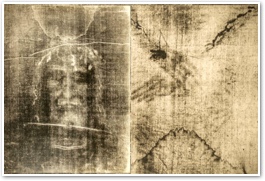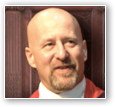The Resurrection and the Death of Atheism
- FATHER DWIGHT LONGENECKER
Jesus rose from the dead. How's that for evidence that God exists?

You can have your five philosophical arguments for the existence of God. If they work for you, that's just fine, but I've always found the five philosophical arguments for the existence of God to be too philosophical and argumentative.
Atheists like to say, "Where is the evidence for the existence of God?," and philosophical arguments aren't really evidence as such. They work well enough, but they remain abstract head games. I'm hearing the atheists when they say they want evidence, and I've asked in response, "What kind of evidence do you want?" Strangely, they seem stumped by my request.
So I answer the question for them. "Would you like forensic evidence? Documentary evidence? Archaeological evidence? Botanical and biological evidence? Would you like photographic evidence? Logical evidence? Historical evidence? Eyewitness evidence? Legal evidence?" In fact, all of these forms of evidence for the existence of God exist, but first we do have to play some of those philosophical head games.
You see, if God does not exist, then the natural order must be a closed system. That is to say, it must operate according to the rules of nature. No miracles are allowed because a miracle would mean that there is a force that is outside of nature and therefore independent and greater than nature. If there is just one miracle, however — and we only need one — then nature is not a closed system and there is a force greater than nature and outside of nature. If that miracle is intelligible, that is to say, it makes sense, then the force that is greater than nature is intelligent, and if it is intelligent than it is more than a force, it is a personality. The force, if you like, has a face.
The one miracle that Christians claim above all others is the resurrection of Jesus Christ from the dead. Arguments for the existence of God are much more interesting when they begin with the evidence for the resurrection. Conversations with atheists should therefore begin with that one miracle, and discussions about that alleged miracle two thousand years ago become very interesting very quickly.
When considering the claims that Jesus Christ rose from the dead, there are really only three options. First, that he did not really die and the "resurrection" was therefore only a form of resuscitation; second that he did die, but something happened so that his body vanished and third, the witnesses to the resurrection were deluded, deceived or were themselves deceptive.
If Jesus didn't really die, then we have to suppose that the professional Roman executioners (who did their work in public) messed up. We also have to believe that the enemies of Jesus, who were there to make sure he died, were also mistaken. We also have to believe that after being flogged with whips that tore off his flesh, and being nailed to a cross, Jesus survived a spear thrust to the heart by a trained executioner. Even if he did survive, we must believe that a day or so later he was strong enough to push back a boulder that weighed several tons and stagger naked into the garden. Then his disciples, when they saw this shredded human being cried out, "It's the resurrection! Let's start a new religion!" Wouldn't you have seen your broken, bloody friend who had somehow survived crucifixion and called for an ambulance?
If they were not deceived and deluded but devious, would they keep up their lie and be willing, in the end, to be tortured and die for it? Would you?
If Jesus did die, on the other hand, we have to account for what happened to his body. His disciples stole the body? Why would they do that? To fake a miracle that no one in their right mind would believe? Two days before they were running away like terrified bunnies and now they get together and plan a Mission: Impossible style heist? Dogs ate Jesus' body on the trash heap? That doesn't match what we know about Jewish burial customs, and besides, the story is clear that Jesus' friends asked for his body and it was given to them. The disciples went to the wrong tomb? Wouldn't they just have said, "Whoops, wrong tomb" rather than "He is risen from the dead!"? It wasn't really Jesus who was crucified? All his enemies were out to get him. So they would have been duped by a patsy?
The only other option is that the disciples were deceived or deluded. What all of them, plus hundreds more who say they saw Jesus alive? Did they meet to get their stories to line up? If so, they weren't deluded, they were devious. If they were not deceived and deluded but devious, would they keep up their lie and be willing, in the end, to be tortured and die for it? Would you?
When faced with such overwhelming arguments, most atheists simply shrug and say, "Well, there are lots of strange things in the world that we don't have the answer for." But this won't do. The weight of history and the evidence gathered demands a verdict. If atheists demand evidence and evidence is supplied, then a response must be demanded.
You remind me that I spoke of botanical, biological, historical, forensic, photographic, scientific, physical archaeological evidence for the resurrection?
That would be the Shroud of Turin, and an article much longer than this one.
 This is Meaghen Gonzalez, Editor of CERC. I hope you appreciated this piece. We curate these articles especially for believers like you.
This is Meaghen Gonzalez, Editor of CERC. I hope you appreciated this piece. We curate these articles especially for believers like you.
Please show your appreciation by making a $3 donation. CERC is entirely reader supported.

Acknowledgement
 Father Dwight Longenecker. "The Resurrection and the Death of Atheism." Aleteia (March 25, 2016).
Father Dwight Longenecker. "The Resurrection and the Death of Atheism." Aleteia (March 25, 2016).
Reprinted with permission from Father Dwight Longenecker. See the original article here.
Standing on my head is the blog of Father Longenecker on Patheos.
The Author
 Father Dwight Longenecker serves as the pastor of Our Lady of the Rosary parish in Greenville, South Carolina. Father Longenecker studied for the Anglican ministry at Wycliffe Hall, Oxford and served for ten years in the Anglican ministry as a curate, a chaplain at Cambridge and a country parson. In 1995 he and his family were received into full communion with the Catholic Church. He is the author of more than twenty books including: Beheading Hydra, Praying the Rosary for Inner Healing, Listen My Son: St. Benedict for Fathers, More Christianity, Challenging Catholics: A Catholic Evangelical Dialogue, St. Benedict and St. Therese: The Little Rule & the Little Way, Mary: A Catholic-Evangelical Debate, and The Path to Rome. You can follow his writings, listen to his podcasts, join his online courses, browse his books, and be in touch at DwightLongenecker.com.
Father Dwight Longenecker serves as the pastor of Our Lady of the Rosary parish in Greenville, South Carolina. Father Longenecker studied for the Anglican ministry at Wycliffe Hall, Oxford and served for ten years in the Anglican ministry as a curate, a chaplain at Cambridge and a country parson. In 1995 he and his family were received into full communion with the Catholic Church. He is the author of more than twenty books including: Beheading Hydra, Praying the Rosary for Inner Healing, Listen My Son: St. Benedict for Fathers, More Christianity, Challenging Catholics: A Catholic Evangelical Dialogue, St. Benedict and St. Therese: The Little Rule & the Little Way, Mary: A Catholic-Evangelical Debate, and The Path to Rome. You can follow his writings, listen to his podcasts, join his online courses, browse his books, and be in touch at DwightLongenecker.com.




